Filter by

Transformations in twentieth century Korea
This edited collection traces the social, economic, political, and cultural dimensions of Korea’s dramatic transformation since the late nineteenth century. Taking an interdisciplinary approach, the chapters examine the internal and external forces which facilitated the transition towards industrial capitalism in Korea, the consequences and impact of social change, and the ways in which Korea…
- Edition
- 1st Edition
- ISBN/ISSN
- 9780203968277
- Collation
- -
- Series Title
- -
- Call Number
- -

Functional structure(s), form, and interpretation: perspectives from East Asi…
The issue of how interpretation results from the form and type of syntactic structures present in language is one which is central and hotly debated in both theoretical and descriptive linguistics. This volume brings together a series of eleven new cutting-edge essays by leading experts in East Asian languages which shows how the study of formal structures and functional morphemes in Chinese, …
- Edition
- 1st Edition
- ISBN/ISSN
- 9780203987667
- Collation
- -
- Series Title
- -
- Call Number
- -
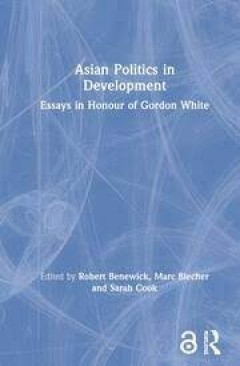
Asian Politics in Development: Essays in Honour of Gordon White
This volume adopts a multidisciplinary and comparative approach to development that brings together issues that are characteristic of the lifelong scholarship of Professor Gordon White. These include a focus on the state, civil society, welfare and globalization.
- Edition
- 1st Edition
- ISBN/ISSN
- 9780203490525
- Collation
- -
- Series Title
- -
- Call Number
- -

China's Business Reforms: Institutional Challenges in a Globalised Economy
China's recent economic reforms have led to impressive growth, and an unprecedented enthusiasm for establishing foreign enterprises in China. Since 1993, China has been the second largest recipient of foreign direct investment in the world and is now considered to be the world's third biggest economy. Its greater economic integration with the rest of the world, especially since its accession to…
- Edition
- 1st Edition
- ISBN/ISSN
- 9780203537039
- Collation
- -
- Series Title
- -
- Call Number
- -
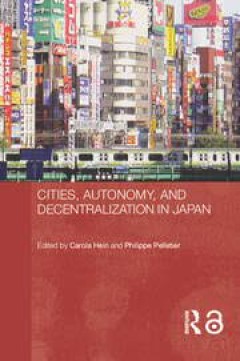
Cities, Autonomy, and Decentralization in Japan
Adding a new perspective to the current literature on decentralization in Japan, Cities, Autonomy and Decentralization in Japan, approaches the subject from an urban studies and planning approach. The essays in the collection present a cogent compilation of case studies focusing on the past, present and future of decentralization in Japan. These include small scale development in the fields suc…
- Edition
- 1st Edition
- ISBN/ISSN
- 9780203358498
- Collation
- -
- Series Title
- -
- Call Number
- -
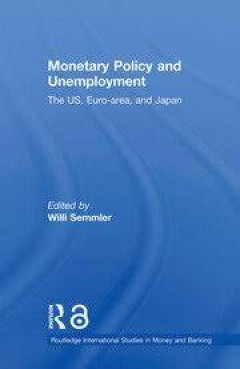
Monetary Policy and Unemployment: the US, Euro-area and Japan
This book pulls together papers presented at a conference in honour of the 1981 Nobel Prize Winner for Economic Science, the late James Tobin. Among the contributors are Olivier Blanchard, Edmund Phelps, Charles Goodhart and Marco Buti. One of the main aims of the conference was to discuss what potential role monetary policy has on economic activity and unemployment reduction in three key curr…
- Edition
- 1st Edition
- ISBN/ISSN
- 9780203329580
- Collation
- -
- Series Title
- -
- Call Number
- -
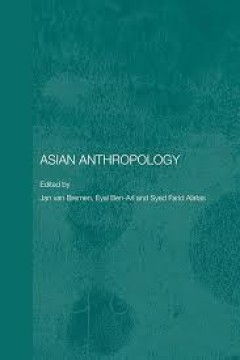
Asian Anthropology
ABSTRACT Asian Anthropology raises important questions regarding the nature of anthropology and particularly the production and consumption of anthropological knowledge in Asia. Instead of assuming a universal standard or trajectory for the development of anthropology in Asia, the contributors to this volume begin with the appropriate premise that anthropologies in different Asian countries ha…
- Edition
- 1st Edition
- ISBN/ISSN
- 9780203308141
- Collation
- -
- Series Title
- -
- Call Number
- -

Politics, Religion and Gender: Framing and Regulating the Veil
Heated debates about Muslim women's veiling practices have regularly attracted the attention of European policymakers over the last decade. The headscarf has been both vehemently contested by national and/or regional governments, political parties and public intellectuals and passionately defended by veil wearing women and their supporters. Systematically applying a comparative perspective, thi…
- Edition
- 1st Edition
- ISBN/ISSN
- 9780203181058
- Collation
- -
- Series Title
- -
- Call Number
- -
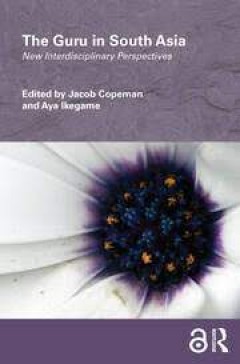
The Guru in South Asia: New Interdisciplinary Perspectives
This book provides a set of fresh and compelling interdisciplinary approaches to the enduring phenomenon of the guru in South Asia. Moving across different gurus and kinds of gurus, and between past and present, the chapters call attention to the extraordinary scope and richness of the social lives and roles of South Asian gurus. Prevailing scholarship has rightly considered the guru to be a so…
- Edition
- 1st Edition
- ISBN/ISSN
- 9780203116258
- Collation
- -
- Series Title
- -
- Call Number
- -

Princely India Re-imagined: A Historical Anthropology of Mysore from 1799 to …
India’s Princely States covered nearly 40 per cent of the Indian subcontinent at the time of Indian independence, and they collapsed after the departure of the British. This book provides a chronological analysis of the Princely State in colonial times and its post-colonial legacies. Focusing on one of the largest and most important of these states, the Princely State of Mysore, it offers a n…
- Edition
- 1st Edition
- ISBN/ISSN
- 9780203102251
- Collation
- -
- Series Title
- -
- Call Number
- -
 Computer Science, Information & General Works
Computer Science, Information & General Works  Philosophy & Psychology
Philosophy & Psychology  Religion
Religion  Social Sciences
Social Sciences  Language
Language  Pure Science
Pure Science  Applied Sciences
Applied Sciences  Art & Recreation
Art & Recreation  Literature
Literature  History & Geography
History & Geography